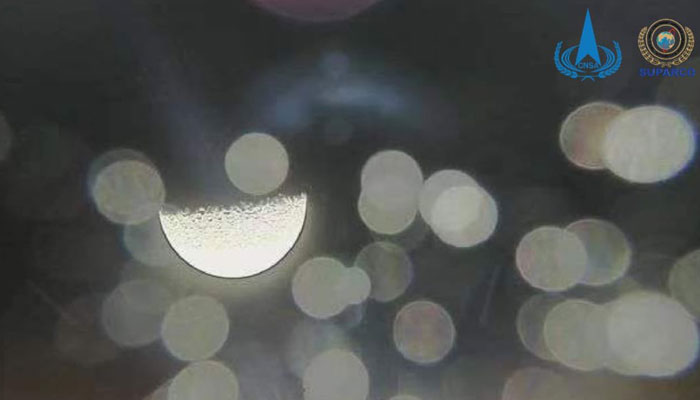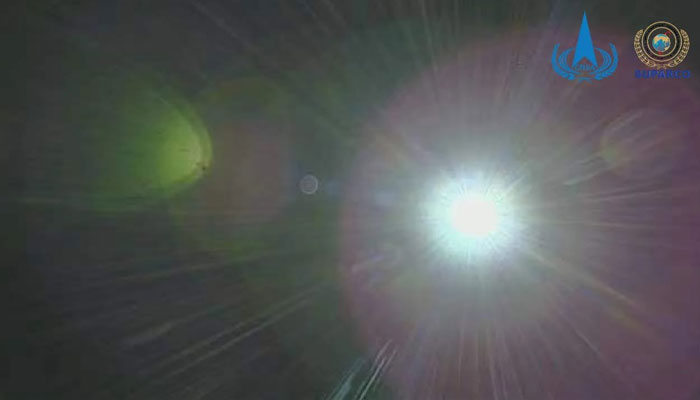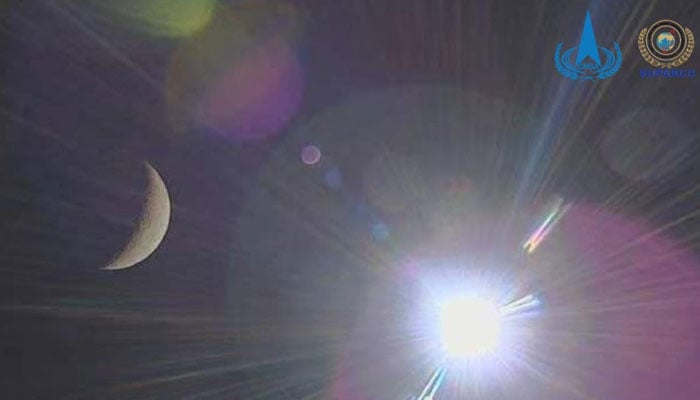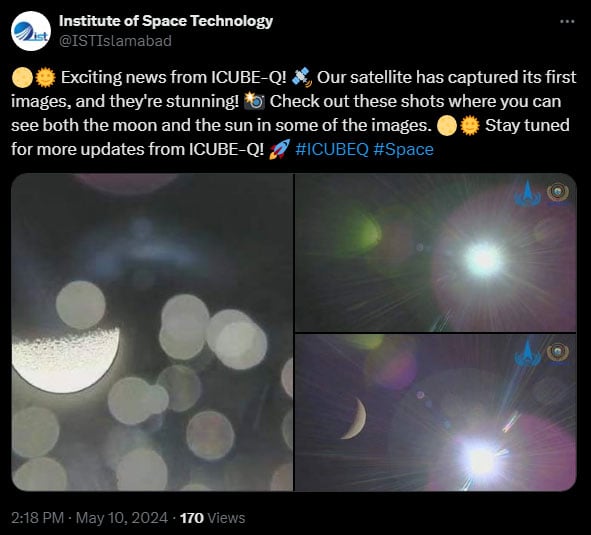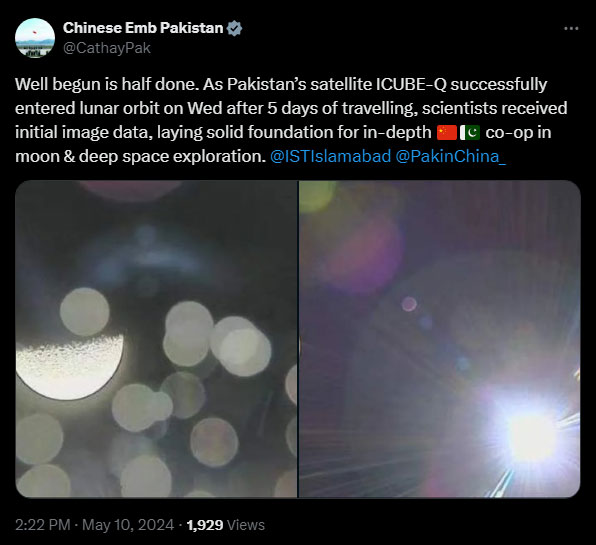Pakistan’s maiden lunar mission sends first image of moon from space
Signals of iCube-Qamar will be received on Earth by covering a distance of 360,000 to 400,000 km, says IST
KARACHI: In a landmark achievement for Pakistan in astronomical science, Pakistan's first satellite mission, iCube-Qamar, has transmitted first-ever image of the moon, Geo News reported, citing the Institute of Space Technology on Friday.
Earlier today, the IST also shared an image of the lunar orbit captured and transmitted by the satellite mission.
iCube-Qamar, according to IST, is the first Pakistani satellite to enter the lunar orbit and has completed its rotation in 12 hours.
"The iCube-Qamar will image the lunar orbit from a distance of 200 kilometres from the surface of the moon," said IST.
It added that the signals of iCube-Qamar will be received on Earth by covering a distance of 360,000 to 400,000 km.
"iCube-Qamar has made three rounds around the moon," the IST said.
The first image was received two days after IST announced that the satellite was successfully deployed in orbit on May 8 at 1:14pm Pakistan time.
Meanwhile, the Chinese Embassy in Pakistan took to X, formerly Twitter, to congratulate Pakistan for the breakthrough.
"Well begun is half done. As Pakistan’s satellite ICUBE-Q successfully entered lunar orbit on Wed after 5 days of travelling, scientists received initial image data, laying solid foundation for in-depth [China-Pakistan] co-op in moon & deep space exploration," the embassy wrote in a post.
The scientist termed the development “a great success overall”.
Following its deployment, the satellite will take images of the desired lunar surfaces in a carefully selected 12-hour elliptical orbit.
The iCube-Qamar was launched on board China's Chang'e-6 from Hainan, China, on May 3.
Ahead of the launch of the satellite last week, Dr Khurram said that the Pakistani satellite will take different pictures of the surface of the moon after which Pakistan will have its own satellite images of the moon for research.
The satellite was designed and developed by the Islamabad-based Institute of Space Technology (IST) in collaboration with China's Shanghai Jiao Tong University (SJTU) and Pakistan's national space agency Suparco.
iCube-Qamar orbiter carries two optical cameras to image the lunar surface. Following successful qualification and testing, the orbiter was integrated with China’s Chang’e6 mission — the sixth in a series of lunar exploration missions.
-
Dutch seismologist hints at 'surprise’ quake in coming days
-
SpaceX cleared for NASA Crew-12 launch after Falcon 9 review
-
Is dark matter real? New theory proposes it could be gravity behaving strangely
-
Shanghai Fusion ‘Artificial Sun’ achieves groundbreaking results with plasma control record
-
Polar vortex ‘exceptional’ disruption: Rare shift signals extreme February winter
-
Netherlands repatriates 3500-year-old Egyptian sculpture looted during Arab Spring
-
Archaeologists recreate 3,500-year-old Egyptian perfumes for modern museums
-
Smartphones in orbit? NASA’s Crew-12 and Artemis II missions to use latest mobile tech
